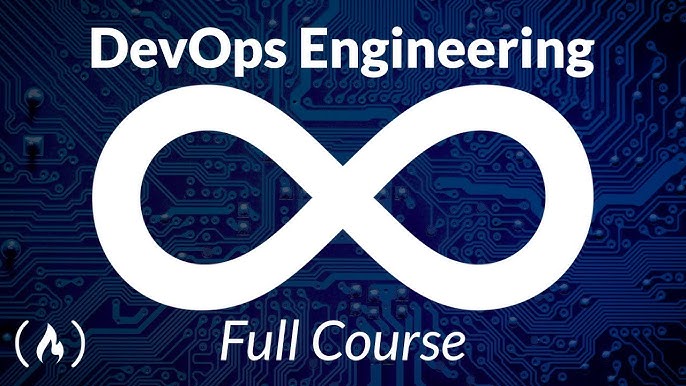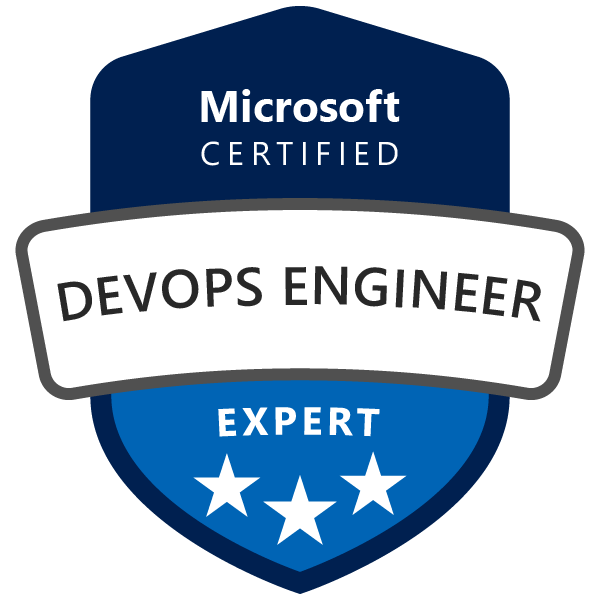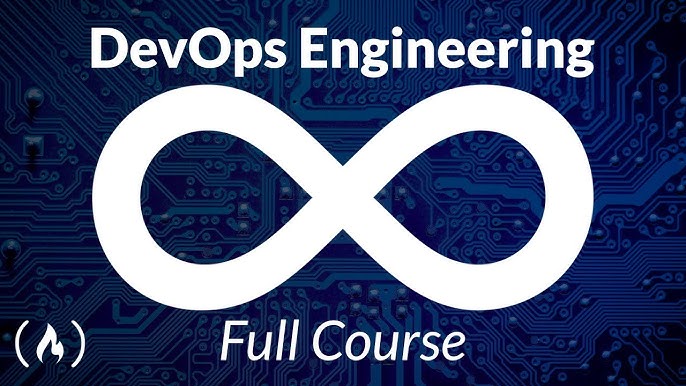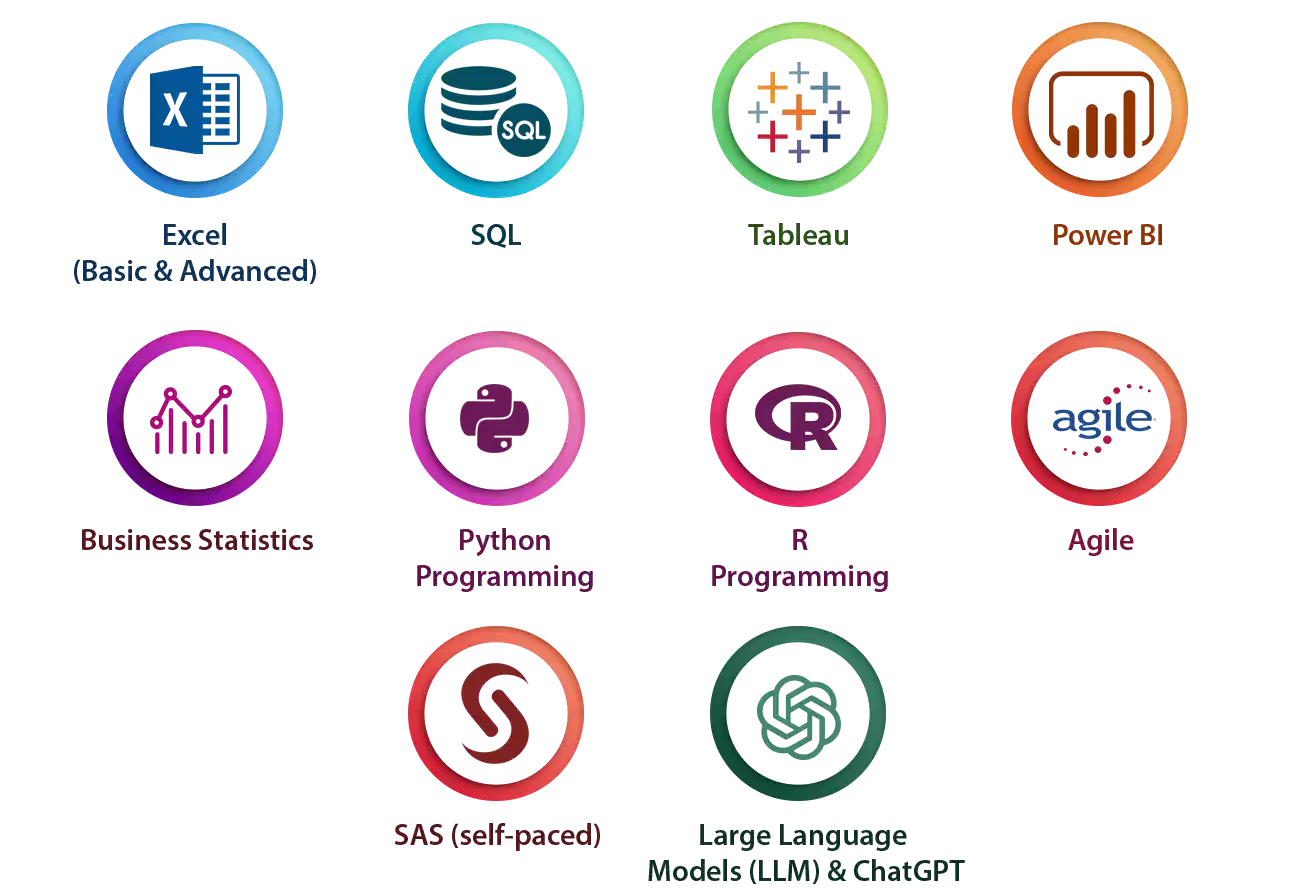Beginner DevOps Engineer Course Learn Skills for Your IT Career

Beginner DevOps Engineer Course Learn Skills for Your IT Career. Unlock your IT potential with our Beginner DevOps Engineer Course: Learn Skills for Your IT Career. Start your journey to becoming a DevOps pro today!

What is DevOps?
DevOps is a blend of development (Dev) & operations (Ops) that encourages collaboration & communication between software engineers & IT operations professionals. This approach is essential in modern tech environments where fast delivery & high-quality software are necessary. It emphasizes automation, continuous integration, & deployment practices to ensure applications are developed & delivered quickly & efficiently. In the context of a Beginner DevOps Engineer Course: Learn Skills for Your IT Career, individuals will explore tools like Docker, Kubernetes, & Jenkins facilitating effective project completion & seamless software production. The role of a DevOps engineer requires a solid understanding of coding, testing, & infrastructure management, making it a vital field with growing demand. Organizations seek out these professionals for their ability to improve deployment frequency & reduce failure rates. By engaging in a structured course, beginners will gain insights into both the methodologies & technologies foundational to this career path.
Key Skills to Learn in a DevOps Course
To successfully transition into a DevOps engineer role, you need specific skills that encompass both developmental practices & operational efficiency. Below are key attributes commonly covered in a Beginner DevOps Engineer Course: Learn Skills for Your IT Career.
Skill Description
Version Control Using tools like Git to manage code changes & enable collaboration in software development.
Continuous Integration/Continuous Deployment (CI/CD) Understanding automation tools like Jenkins that streamline the integration & deployment process.
Infrastructure as Code (IaC) Utilizing tools like Terraform & Ansible to manage infrastructure through code.
Containerization Working with Docker & Kubernetes for application packaging & orchestration.
Monitoring & Logging Implementing tools that help in monitoring application performance & logging events for troubleshooting.
These skills form the backbone of the DevOps practices that companies look for. Mastering them not only enhances your employability but also prepares you for real-world challenges in the IT sector.
Importance of Collaboration in DevOps
One of the central tenets of DevOps is collaboration. Breaking down silos between development & operations teams results in better performance, improved communication, & faster problem resolution. In a Beginner DevOps Engineer Course: Learn Skills for Your IT Career, students learn how to foster a culture of teamwork. This collaborative environment leads to increased efficiency & shared responsibility for production quality. Techniques such as cross-functional teams & the Agile methodology are often illustrated in the curriculum, emphasizing how everyone in the tech team plays a part in the software lifecycle. Collaboration tools, like Slack or Microsoft Teams, foster communication & feedback loops, making it easier for teams to resolve issues as they arise. By prioritizing collaboration, organizations leverage various perspectives for innovative solutions while reducing miscommunication. Through engaging in group projects during the course, participants can refine their interpersonal skills & experience real-life team dynamics essential for their future roles.
The Role of Automation in DevOps
Automation is a cornerstone in DevOps practices, as it drastically reduces manual effort & human error. In a Beginner DevOps Engineer Course: Learn Skills for Your IT Career, learners will explore a plethora of automation tools designed to enhance workflow. Automation can span from testing & building software to deploying & monitoring applications. Tools like Jenkins for CI/CD, Puppet & Chef for configuration management, & Selenium for automated testing will frequently be discussed. This module typically incorporates both theoretical foundations & practical applications, where students can set up automated workflows for hypothetical projects. By automating repetitive tasks, DevOps engineers can focus on strategic initiatives while ensuring consistent execution of processes. Understanding automation's impact on resource management, speed, & error reduction makes participants highly valuable to prospective employers.
Popular Tools & Technologies in DevOps
The landscape of DevOps is filled with various tools that facilitate different aspects of the software development & operational process. Below are some of the most popular tools you will encounter:
Git: A version control system that allows multiple developers to work on the same codebase concurrently.
Jenkins: An automation server that provides the capability to set up CI/CD pipelines.
Docker: A platform for developing, shipping, & running applications in containers.
Kubernetes: An orchestration tool for managing containerized applications.
Terraform: A tool for building, changing, & versioning infrastructure safely & efficiently.
Learning how to leverage these tools can significantly enhance your productivity & make you an asset within any IT team. A comprehensive course will cover hands-on labs that provide practical experience using these technologies.
Development vs. Operations: The Balance
One common challenge faced in DevOps is maintaining a balance between development & operations. Each area has distinct focuses; developers prioritize features & rapid delivery, while operations emphasize system stability & performance. A Beginner DevOps Engineer Course: Learn Skills for Your IT Career will typically cover how to bridge these gaps. By teaching effective practices that include monitoring, incident management, & post-mortems, students will learn to appreciate the critical viewpoints of both roles. Discussions often include case studies of successful DevOps integration across companies to showcase how enhancements in one area can lead to improvements in the other. Understanding this balance prepares you to align your work with organizational goals, ensuring that both development speed & operational efficiency are optimized.
Real-world Applications & Case Studies
One effective way to grasp the applicability of DevOps is through case studies that highlight successful implementations. During a Beginner DevOps Engineer Course: Learn Skills for Your IT Career, real-world scenarios are analyzed to illustrate tangible results. For instance, many organizations have adopted CI/CD practices to drastically reduce deployment times & errors. These studies often demonstrate how specific tools & processes were utilized to address challenges, revealing critical lessons learned throughout the process. By examining these successful implementations, participants gain insights into strategy formulation, problem-solving, & operational efficiency, which they can apply in their careers. Real-world applications will also likely involve guest speakers or industry experts sharing their experiences, thus bridging the gap between theoretical knowledge & practical expertise.
Seeking Certification & Career Advancement
Obtaining certifications in DevOps can significantly enhance your career prospects. A well-structured Beginner DevOps Engineer Course: Learn Skills for Your IT Career often includes preparation for industry-recognized certifications such as AWS Certified DevOps Engineer or Docker Certified Associate. These certifications validate your skills & commitment to potential employers. In addition to increasing your job prospects, they can also lead to higher salaries & more substantial responsibilities. Many courses may offer guidance on the certification process, including study materials & exam tips. Completing a course & earning certifications not only solidifies your knowledge but also showcases your dedication to professional development, making you a more competitive candidate in an ever-evolving job market.
“Enrolling in a Beginner DevOps Engineer Course: Learn Skills for Your IT Career was one of my best decisions. It opened up numerous opportunities & equipped me with essential tools to thrive in the tech industry.” - Iliana Buckridge
Frequently Asked Questions
What prerequisites are typically needed for a beginner DevOps course?
Most beginner-level DevOps courses do not require prior experience. Be that as it may, having a basic understanding of software development & cloud computing can be beneficial.
FAQ
- How long does it take to complete a beginner DevOps engineer course?
Completion time varies by program but typically ranges from a few weeks to a few months, depending on the structure & content of the course.
2.Can I take a beginner DevOps course online?
Yes, numerous online platforms offer beginner DevOps courses that provide flexibility & convenience for learners to study at their own pace.
3.What job opportunities are available for DevOps engineers?
DevOps engineers can pursue various roles, including Site Reliability Engineer (SRE), DevOps Consultant, & Systems Administrator, among others.
4.Is there a demand for DevOps engineers in the job market?
Yes, the demand for DevOps engineers is steadily increasing as organizations seek to improve their software development lifecycle through enhanced efficiency & productivity.
Beginner DevOps Engineer Course Learn
Taking a Beginner DevOps Engineer Course: Learn Skills for Your IT Career is essential for anyone looking to build a career in IT. With proper instruction on critical skills, tools, & methodologies, participants can look forward to a bright future in various technology careers. Enriching your knowledge & landing certifications provides a competitive edge, making you a desirable candidate for employers.






